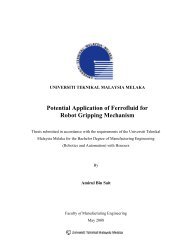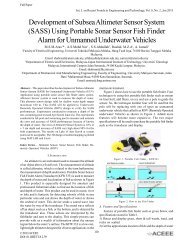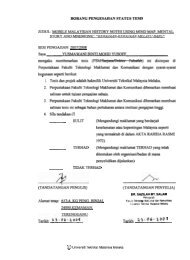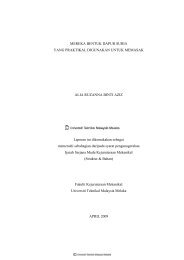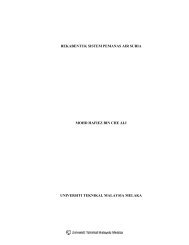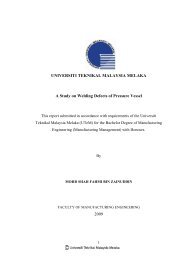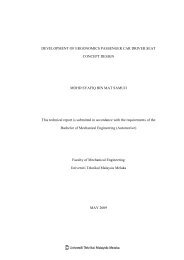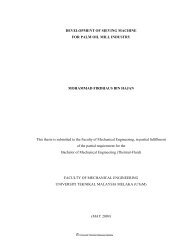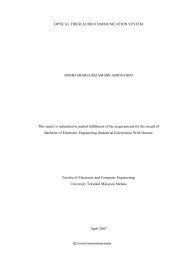Brand, Identity and Reputation: Exploring, Creating New Realities ...
Brand, Identity and Reputation: Exploring, Creating New Realities ...
Brand, Identity and Reputation: Exploring, Creating New Realities ...
Create successful ePaper yourself
Turn your PDF publications into a flip-book with our unique Google optimized e-Paper software.
Fierman, (1991) found that 47% of consumers dismiss environmental claims as gimmicks. This is supported by a survey<br />
conducted by Mintel (2007) who found that 63% of respondents asked are cynical about the efforts of companies to<br />
prove their green credentials, agreeing that ‗companies are just using these issues to try to make themselves look good‘.<br />
3. Methodology<br />
3.1. Research Design <strong>and</strong> Data Collection<br />
The design of the research was defined through a six stage process. The first stage research objectives were formed. The<br />
review of the secondary archived material determined that both the Co-operative <strong>and</strong> Marks <strong>and</strong> Spencer have an<br />
invested interest in environmental management <strong>and</strong> their corporate social responsibilities. This interlinked with<br />
consumer cynicism established the main objective of the study which was to explore consumer perceptions regarding<br />
organisations <strong>and</strong> their efforts to behave in a socially responsible way. This was supplemented by stage two. A small<br />
exploratory sample utilising an online forum of public comments in response to questions placed on the website in order<br />
to gain consumer insights <strong>and</strong> perspectives. Stage three outlines the estimations of budget <strong>and</strong> project time of<br />
completion. The online forum was appropriate as it reached a wider audience for no cost. Stages four <strong>and</strong> five consist of<br />
research design <strong>and</strong> data collection, general questions were posted on the forum to yield insights, questions such as,‘ do<br />
favour br<strong>and</strong>s or organisations that incorporate environmental issues within the business?‘ Further postings were made<br />
on the forum to ensure consumers did not diverge from the question initially posted, <strong>and</strong> also to yield further insights.<br />
Finally stage six allows decisions <strong>and</strong> directions to be made in further research on the basis of the research outcomes.<br />
3.2. Analysis<br />
Netnography as a methodology for consumer research has been utilised <strong>and</strong> explored since the late 1990s. It is used as<br />
an interpretive method specifically designed to investigate consumer behaviour of culture <strong>and</strong> communities present on<br />
the internet (Beckmann <strong>and</strong> Langer, 2005). Kozinets (1998) suggests that online communication between consumers<br />
has been studied by using Netnography in order to underst<strong>and</strong> consumer attitudes, perception, imagery <strong>and</strong><br />
participation. Therefore information was collated <strong>and</strong> all findings were then analysed using thematic coding.<br />
4. Results<br />
Throughout the discussion several significant findings were identified. The initial post on the forum was to gain general<br />
insights on consumer views regarding organisations <strong>and</strong> its green practices. Respondent one stated;<br />
―I‘m a fairly unconscious shopper in my personal life....if it‘s the cheapest price ill have it.‖<br />
Respondent one further stated,<br />
―I think they are possibly of even more importance to the big companies who face much more stringent criticism from the media about their<br />
every action.‖<br />
Throughout the discussion it became apparent that respondents would happily help the environment. However other factors such as cost <strong>and</strong><br />
convenience play a crucial role in preventing purchase rather than intent. Respondent two states;<br />
―To me, price is king‖<br />
Respondent five states,<br />
―Despite what multinationals might claim in "Corporate Social Responsibility" guff. In the free market, price <strong>and</strong> profit are always going to<br />
be the primary concern.‖<br />
Respondent seven states,<br />
―. I wouldn‘t care if a company was trying additional environmental practices - it‘s where the prices are lowest.‖<br />
The next post on the forum was to distinguish whether consumers felt that organisations were favoured because of its environmental<br />
practices.<br />
Respondent three stated,<br />
―They are certainly favoured by local authorities <strong>and</strong> other such large clients‖<br />
Respondent one stated;<br />
―I‘d like to say that they would be favoured....but ultimately I don‘t think that true. I think income <strong>and</strong> the consumer‘s active level of<br />
environmental conscience are directly linked‖<br />
Respondent four states:<br />
―Ticking green boxes seems to work for some consumers so I guess that type of marketing will work to a degree‖<br />
Respondent six stated,<br />
―Recently my local supermarket became a Co-op; however, I know if it became Wal-mart tomorrow, despite resistance, I would still use it<br />
out of convenience rather than any ethical/green hoo-hah.‖<br />
Respondent seven states,<br />
―Realistically, I don‘t think the big retailers really care about environment issues - they just want the public to think they do.‖<br />
The next post on the forum was to distinguish whether consumers felt that there was a lack of trust between the organisation <strong>and</strong> the<br />
consumer.<br />
Respondent two states,<br />
―They are about profit, nothing more.‖<br />
Respondent seven states,<br />
―Personally I think there is not much trust - why should there be? The only thing I trust is that "I trust they will make profit.‖<br />
5. Limitations<br />
Through managing <strong>and</strong> maintaining the forum several limitations became apparent. The first limitation is that the study<br />
has been undertaken online with one forum, Stafford forum. Therefore it is fully acknowledged that the use of one<br />
forum with a small sample is not a fair representation of consumer insights generally; <strong>and</strong> thus no generalisations have<br />
been made. The use of a web forum meant that respondents tended to diverge away from the questions posted; therefore<br />
further posts were posted in order to bring respondents back to the main discussion points. Future research should be<br />
21



